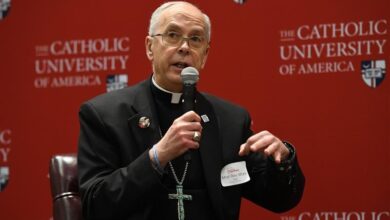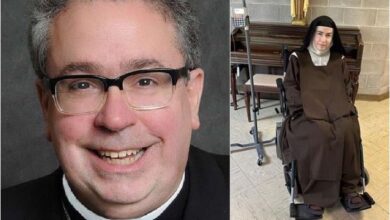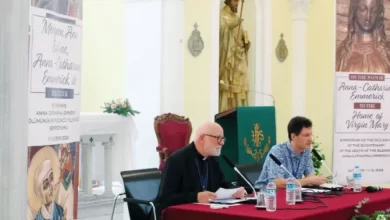Native group backed by U.S. bishops loses Supreme Court bid to halt sacred land transfer
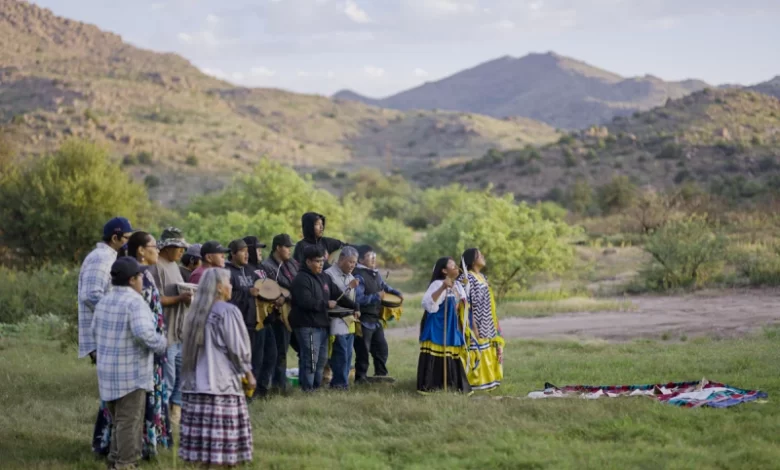
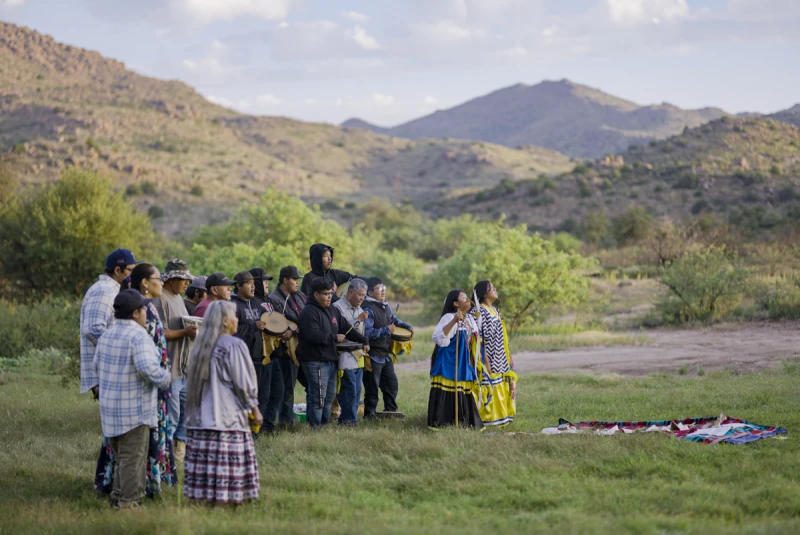 The Catholic bishops backed a suit by a coalition of Apache Stronghold, a coalition of Native Americans and their supporters, in their lawsuit against the federal government. The lawsuit argued that their freedom of religion was violated when the federal government announced its intention to sell formerly protected land in Arizona to a mining company. / Credit: Photo courtesy of Becket
The Catholic bishops backed a suit by a coalition of Apache Stronghold, a coalition of Native Americans and their supporters, in their lawsuit against the federal government. The lawsuit argued that their freedom of religion was violated when the federal government announced its intention to sell formerly protected land in Arizona to a mining company. / Credit: Photo courtesy of Becket CNA Staff, May 28, 2025 / 17:41 pm (CNA).
A Native American group whose attempt to halt the transfer of a sacred land site received backing from the U.S. bishops was dealt a blow to that effort when the U.S. Supreme Court this week refused to stop the sale from taking place.
The high court denied the request from the coalition group Apache Stronghold to consider halting the sale of the Oak Flat site to a copper mining corporation. The religious liberty law group Becket represented the group in the case.
The federal government several years ago moved to transfer Oak Flat to Resolution Copper — a British-Australian multinational company — after having protected the site for decades for the use of the Apaches.
The proposed mining operations would largely obliterate the site, which has been viewed as a sacred site by Apaches and other Native American groups for hundreds of years and has been used extensively for religious rituals.
Apache Stronghold argued that the transfer would violate both the federal Religious Freedom Restoration Act (RFRA) and an 1852 treaty protecting Apache territory. A U.S. district court ruled earlier this month to halt the sale of the site while the Supreme Court considered the question.
On Tuesday the court declined to take up the case. Justices Neil Gorsuch and Clarence Thomas dissented from the decision, with Gorsuch arguing that the Supreme Court “should at least have troubled itself to hear [the] case” before “allowing the government to destroy the Apaches’ sacred site.”
A lower court had decided that though RFRA generally prohibits the government’s “substantial burdening” of religion, that guidance does not apply in cases of “disposition of government real property.” That decision, Gorsuch said, was “far from obviously correct.”
He noted that the novel interpretation of RFRA law could have much wider implications than the Apache case. The justice pointed to a legal dispute involving the Knights of Columbus, who in 2023 were denied permission to celebrate a long-held Mass in a Virginia federal cemetery, with the government citing the new RFRA standard.
The government eventually relented and allowed the Knights to hold the Mass, but, Gorsuch argued, “seemingly nothing would prevent it from trying its hand again” so long as the newly revised law is allowed to stand.
After the court’s decision on Tuesday, Luke Goodrich, vice president and senior counsel at Becket, said it was “hard to imagine a more brazen attack on faith than blasting the birthplace of Apache religion into a gaping crater.”
“The court’s refusal to halt the destruction is a tragic departure from its strong record of defending religious freedom,” he said. “We will do everything in our power to ensure that the Apaches can continue worshipping at Oak Flat as they have for generations.”
Last year the U.S. Conference of Catholic Bishops (USCCB) joined an amicus brief with the Christian Legal Society and the Assembly of Canonical Orthodox Bishops of the United States of America, arguing that the lower court decisions allowing the sale represent “a grave misunderstanding of RFRA that fails to apply its protections in evaluating that destruction.”
The transfer of the land “jeopardizes Native American religious practice and religious liberty more broadly,” the groups argued.
The Knights of Columbus similarly filed a brief in support of the Apaches, arguing that the decision to allow the property to be mined “reads into RFRA an atextual constraint with no grounding in the statute itself.”
The decision is devastating not just to the Apaches but to “the myriad religious adherents of all faiths and backgrounds who use federal lands every day for their religious exercise,” they said.


